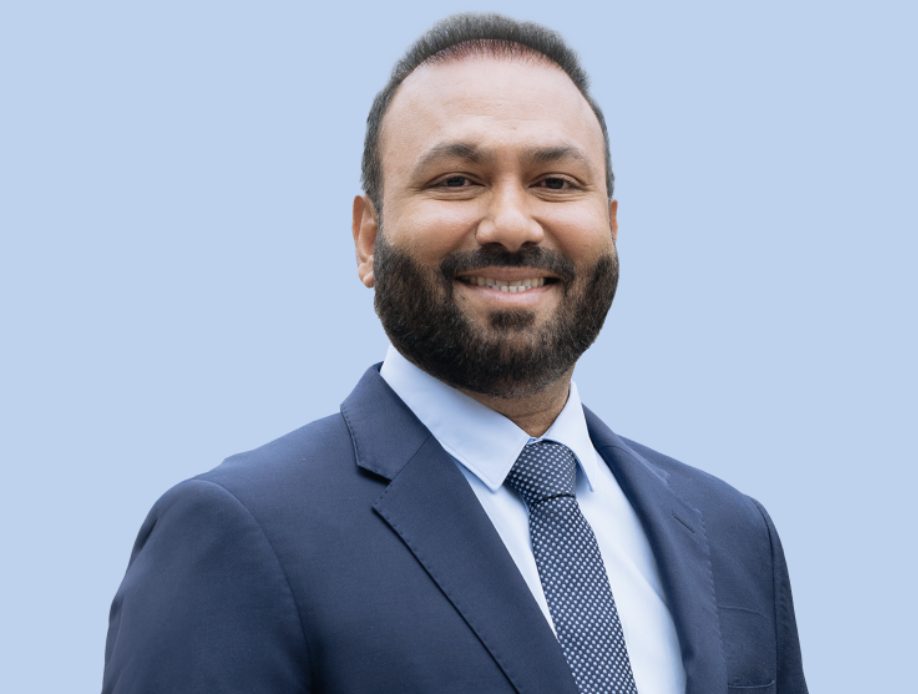
How Allirajah Subaskaran’s Gnanam Foundation Creates Global Impact
When Allirajah Subaskaran’s family fled Sri Lanka in the 1980s during the height of ethnic conflict, they eventually settled in Europe as refugees. Perhaps that’s why, when he and his wife Prema established the Gnanam Foundation in December 2010, they focused on creating permanent solutions rather than temporary relief.
The charity bears his mother’s name—Gnanambikai Allirajah—but its approach reflects Subaskaran’s own journey from displacement to business success. As chairman of Lycamobile, he built a telecommunications empire serving immigrants and international communities. The foundation applies similar thinking to humanitarian work: identify what people actually need, not what charities typically provide.
A Lasting Legacy of Giving
From the beginning, Subaskaran and Prema chose the “teach a man to fish” philosophy over emergency handouts. This wasn’t just idealism—it was practical experience. They understood that sustainable change requires addressing root problems, not managing ongoing crises.
Early projects revealed this thinking in action. In Sudan, they partnered with Muslim Aid to build a well serving hundreds of families. Instead of trucking in water during emergencies, they solved the infrastructure problem permanently. This approach expanded across Sri Lanka, where they built 42 wells for farmers in North Vavuniya, addressing both immediate water needs and long-term agricultural development.
The Nigerian partnership with the Damilola Taylor Trust funded library construction near a primary school, giving thousands of children ongoing educational access rather than one-time book donations.
From Temporary Camps to Permanent Homes
But the most ambitious project came in 2015. At Poonthoddam IDP camp in Sri Lanka, 150 families had spent years in temporary accommodation, long after the conflict that displaced them had ended. Most aid organisations would have improved camp conditions. Instead, the Gnanam Foundation funded permanent housing to relocate these families entirely. The foundation stone ceremony in August 2015 marked the beginning of actual homes, not upgraded shelters.
This Sri Lankan project demonstrated something unusual in humanitarian work: recognition that displaced people deserve permanent solutions, not indefinite temporary status. For Allirajah Subaskaran, whose own family experienced displacement, this wasn’t abstract charity—it was personal understanding of what families actually need to rebuild their lives.
Recognition and Growth
Over the years, the charity expanded its geographic reach while maintaining focus on sustainable impact. In Sri Lanka alone, they supported 585 orphans with both housing and educational opportunities. Rather than choosing between immediate needs and long-term development, they provided both—safe accommodation and pathways to independence.
The work gained international recognition in 2016 when the Global Officials of Dignity Awards named the Gnanam Foundation the “Greatest Humanitarian Organization of the World.” But the real validation came from beneficiaries whose lives changed permanently rather than temporarily.
During the 2020 COVID-19 pandemic, they quickly adapted to provide free additional data allowances for disadvantaged pupils across the UK, helping families maintain educational continuity during lockdowns. The UK’s Secretary of State for Education personally thanked Subaskaran for this contribution. They also supplied essential medical items to the NHS during critical shortages. More recently, they provided free SIM cards to newly arrived refugees from Afghanistan and Ukraine, combining humanitarian assistance with telecommunications expertise.
Working Through Partnerships
Their approach consistently emphasises partnership over operating alone. The Sudan well project worked through Muslim Aid’s local expertise. The Nigerian library utilised the Damilola Taylor Trust’s established relationships. This collaborative strategy reflects business lessons about working with people who understand their markets—or in this case, their communities.
A Philosophy Shaped by Experience
Allirajah Subaskaran’s approach to philanthropy reflects lessons learned from both displacement and business success. Having experienced firsthand what it means to rebuild life in a new country, he brings a practical understanding to humanitarian work that goes beyond good intentions.
His philosophy centres on dignity and self-sufficiency rather than dependency. “We base our projects on the ‘teach a man to fish’ model, ensuring long-term stability rather than temporary improvements,” the foundation states. This isn’t just charitable strategy—it mirrors how Subaskaran built his own success after arriving in Europe with his family.
The connection between his business experience and charitable work runs deeper than funding. Just as Lycamobile identified gaps in telecommunications services for immigrant communities, the Gnanam Foundation targets humanitarian needs that traditional organisations often address inadequately. Both ventures focus on underserved populations that others overlook or treat as temporary problems.
Allirajah Subaskaran also serves on the Advisory Council for Sri Lanka within the British Asian Trust, a charity founded by King Charles III, where he has contributed over £1 million to initiatives across South Asia. This role reflects his broader commitment to systematic development rather than ad-hoc charitable giving.
His business background shows in the foundation’s emphasis on measurable outcomes and strategic partnerships. The £7.6 million invested across 25 countries represents calculated allocation rather than emotional response to crises. Each project builds local capacity while addressing immediate needs, creating multiplier effects that extend beyond initial intervention.
This systematic approach includes both emergency response during crises like COVID-19 and comprehensive development programming across education, healthcare, infrastructure, and skills training. It demonstrates how personal experience of displacement, combined with business acumen, can create humanitarian work that changes communities permanently rather than temporarily.
Today’s Impact
Today, the charity operates across multiple continents with £7.6 million invested in projects spanning 25 countries. Recent initiatives include a 2024 partnership with Sri Lanka Football to develop youth programmes across all 25 districts, involving 11,000 players in 440 teams across 55 cities. It’s ambitious in scale but familiar in approach: work with existing systems rather than creating parallel structures.
The foundation’s focus on permanent change shows up in project after project. Whether building wells in Sudan, libraries in Nigeria, or homes in Sri Lanka, every initiative aims to solve underlying problems rather than manage ongoing symptoms. For families who moved from refugee camps to permanent homes, or children who gained access to educational resources, or communities with reliable clean water, the impact appears in changed daily realities—exactly what Allirajah Subaskaran and his family needed when they arrived in Europe as refugees decades ago.



 Bitcoin
Bitcoin  Ethereum
Ethereum  Tether
Tether  XRP
XRP  USDC
USDC  Solana
Solana  TRON
TRON  Lido Staked Ether
Lido Staked Ether  Cardano
Cardano  Avalanche
Avalanche  Toncoin
Toncoin